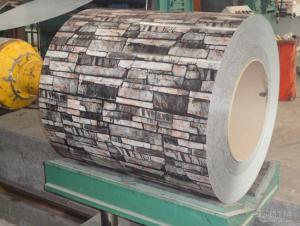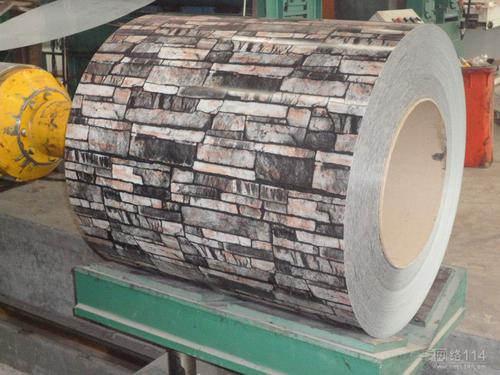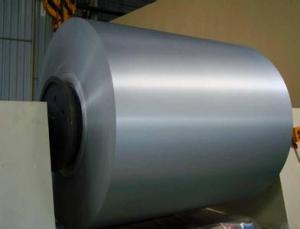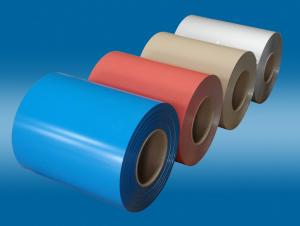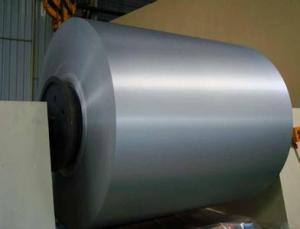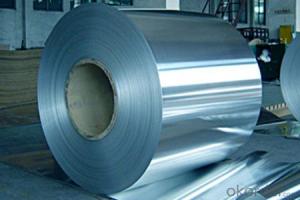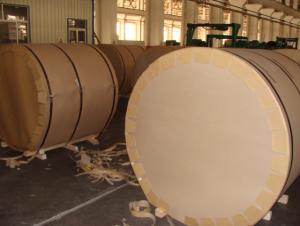Coated Aluminum Coil - 1xxx Series
- Loading Port:
- China Main Port
- Payment Terms:
- TT OR LC
- Min Order Qty:
- -
- Supply Capability:
- -
OKorder Service Pledge
OKorder Financial Service
You Might Also Like
Product Description:
1 Specifications of PE Coated Aluminum Coil/Sheet
Alloy | AA1050,AA1060, AA1070, AA1100, AA3003, AA3004, AA3005, AA3105, AA5005, AA5052, AA5754, AA5083, AA8011 |
Temper: | H12, H14, H16, H18, H22, H24, H26, H32,HO, F |
Thickness: | 0.10-4.0mm |
Width: | 10mm- 2000mm |
Coating | PE(Polyester) |
Painting Thickness | Standard 16-25 microns, max 40 microns |
Color | Acording to Ral colors or customer’s samples |
Standard: | GB/T17748-1999, ASTM, ISO, EU standard |
Special Specification is available on customer’s requirement | |
Paint Material:PPGI,BECKER, NIPPON.
PE(polyester) Coating
PVDF
2 Usage/Applications of PE Coated Aluminum Coil/Sheet
Our company's PE Coated Aluminum Coil/Sheet have been widely used in the fields of construction and decoration(garage doors, ceiling etc.), electronic appliances, lighting decoration, air-condition air pipe, sanwich panels and drainage, etc.
- Q: What are the common alloys used in aluminum coil production?
- The common alloys used in aluminum coil production are 3003, 3105, 5052, and 6061.
- Q: Is there any specific regulation or standard that dictates the weight of an aluminum coil?
- <p>Yes, there are regulations and standards that dictate the weight of aluminum coils. These are often set by industry standards such as ASTM (American Society for Testing and Materials) and EN (European Norm). The weight of an aluminum coil can vary depending on its thickness, width, and length, and manufacturers must adhere to these standards to ensure consistency and quality. For example, ASTM B 209 specifies the standard for aluminum and aluminum alloy sheet and plate, which includes weight limits. Compliance with these standards is crucial for the safety and performance of products that utilize aluminum coils.</p>
- Q: Are there any specific maintenance requirements for aluminum coils?
- Yes, there are specific maintenance requirements for aluminum coils. Aluminum coils are commonly used in HVAC systems and require regular cleaning and maintenance to ensure optimal performance and longevity. Some of the maintenance requirements for aluminum coils include: 1. Cleaning: Regular cleaning of aluminum coils is necessary to prevent the buildup of dirt, dust, and other contaminants. This can be done using a soft brush or a vacuum cleaner with a brush attachment. It is important to clean both the fins and the surface of the coils to ensure proper airflow. 2. Inspection: Regular inspection of aluminum coils is essential to identify any signs of damage or corrosion. Look for any bent fins, leaks, or signs of wear and tear. If any issues are detected, they should be addressed immediately to prevent further damage. 3. Coil Protection: Applying a protective coating to aluminum coils can help prevent corrosion and extend their lifespan. There are various coatings available in the market specifically designed for aluminum coils, which can provide an additional layer of protection against environmental factors. 4. Air Filter Maintenance: The air filters in HVAC systems play a crucial role in maintaining the cleanliness of the coils. It is important to regularly clean or replace the air filters to prevent the accumulation of dust and debris on the coils. Clogged filters can restrict airflow and reduce the efficiency of the system. 5. Regular Maintenance Schedule: Creating a regular maintenance schedule is essential to ensure that all necessary maintenance tasks are performed on time. This can include cleaning, inspection, and any other specific requirements recommended by the manufacturer. It is important to consult the manufacturer's guidelines and recommendations for specific maintenance requirements for aluminum coils, as they may vary depending on the type of system and application. Following these maintenance requirements can help ensure that aluminum coils function efficiently and have a longer lifespan.
- Q: What are the pros and cons of utilizing aluminum coils in storage applications?
- <p>Aluminum coils offer several advantages for storage, including high durability, corrosion resistance, and lightweight properties which make them easy to handle. They are also recyclable and have good thermal conductivity, which can be beneficial in temperature-controlled environments. However, there are downsides such as higher initial costs compared to some other materials and potential for denting or damage if not properly handled. Additionally, while aluminum is generally non-magnetic, it can be attracted to strong magnets, which might be a consideration in certain storage scenarios.</p>
- Q: Are aluminum coils susceptible to warping or bending?
- Yes, aluminum coils are susceptible to warping or bending due to their relatively low strength and flexibility.
- Q: Can aluminum coils be used in corrosive environments?
- No, aluminum coils should not be used in corrosive environments. Aluminum is susceptible to corrosion, especially in the presence of certain chemicals or salts. Therefore, it is recommended to use a more corrosion-resistant material, such as stainless steel, in such environments.
- Q: I am writing a science-fiction story, and I am planning on making Aluminum this ultra-valuable element (Which adds irony - Aluminum is the third most abundant element on Earth!) Even if ol' atomic no. 13 is as common throughout the universe as it is on Earth, I can bring up 'multiverse' to get away with it. I think it'd still be nice to know.
- Interesting, the aluminum must flow? Aluminum is not as common as other elements. It is not readily produced in the cores of stars through the alpha-capture process (which produces things like carbon, oxygen, neon, magnesium, silicon, etc.). This means it is only produced via supernova explosions. The table in Wikipedia (see link below) will give you an idea of the relative abundance to other elements. (Notice that magnesium and silicon, which are before and after aluminum, are nearly 100 times more abundant). As a fellow, Sci-Fi enthusiast, I'd remind you to make you're story believable. If you decide that your universe won't have supernovae, remember that would mean there would be no iron, gold, uranium, etc. My answer has been long enough, but I'm sure you have an idea why aluminum is so abundant on the Earth's crust so I'll stop here.
- Q: How are aluminum coils processed for specific applications?
- Aluminum coils undergo a series of processes to tailor them for specific applications. The first step is the selection of high-quality aluminum alloy, which determines the coil's properties. Once the alloy is chosen, it is melted and cast into large ingots. After cooling, the ingots are rolled between heavy rollers to reduce their thickness and form long, continuous aluminum coils. Next, the coils are subjected to various surface treatments to enhance their performance and appearance. One common treatment is cleaning, which removes any impurities or contaminants from the coil's surface. This is typically done through chemical or mechanical methods. Another treatment is chemically etching the surface to create a specific texture or pattern, which can improve adhesion or aesthetics. To further enhance the coil's properties, it may undergo processes like heat treatment or annealing. Heat treatment involves heating the coil to a specific temperature and then rapidly cooling it to modify its mechanical or physical properties. Annealing, on the other hand, involves heating the coil to a predetermined temperature and then slowly cooling it to relieve internal stresses and improve its ductility. Coils destined for specific applications may also undergo additional processes. For instance, if the coil is intended for use in the automotive industry, it may be subjected to lubrication or coating processes to reduce friction or improve corrosion resistance. If it is meant for electrical applications, it might undergo surface treatments to enhance its conductivity or insulation properties. Finally, the coils are usually cut into desired lengths and packaged for transportation. This can be done through various methods like slitting, shearing, or sawing, depending on the application and customer requirements. Overall, the processing of aluminum coils for specific applications involves a combination of casting, rolling, surface treatment, heat treatment, and additional processes to enhance their performance, appearance, and suitability for their intended use.
- Q: How are aluminum coils used in the manufacturing of signage?
- Aluminum coils are widely used in the manufacturing of signage due to their numerous beneficial properties. These coils are typically made from high-quality aluminum alloy, which offers excellent corrosion resistance and durability, making them ideal for outdoor applications. The first step in using aluminum coils for signage manufacturing is the process of coil slitting. This involves cutting the large aluminum coils into smaller, more manageable sizes that can be easily shaped and formed to meet specific design requirements. This slitting process ensures that the coils are the right width and thickness for the desired signage application. Once the coils are properly sized, they are typically fed into a roll-forming machine. This machine allows for the precise shaping of the aluminum coils into the desired signage profiles, such as flat panels, letters, or channel letters. The flexibility of aluminum allows for intricate and customized designs to be easily achieved. Aluminum offers great versatility in terms of finishing options. The coils can be coated with various protective finishes, such as polyester or PVDF coatings, which provide enhanced durability and resistance to fading, chipping, or peeling. These finishes also allow for a wide range of color choices, enabling signage manufacturers to create eye-catching and vibrant displays. Furthermore, aluminum coils are lightweight, making them easier to handle during the fabrication process and reducing transportation costs. Their lightweight nature also makes them suitable for mounting on various surfaces, such as walls, poles, or freestanding structures. In summary, aluminum coils play a crucial role in the manufacturing of signage by providing a durable, corrosion-resistant, lightweight, and versatile material. They can be easily shaped and formed to create customized designs, and their protective finishes ensure long-lasting and visually appealing signage displays.
- Q: What are the typical delivery methods for aluminum coils?
- The typical delivery methods for aluminum coils include shipping via truck or rail, as well as air freight for urgent or long-distance deliveries.
Send your message to us
Coated Aluminum Coil - 1xxx Series
- Loading Port:
- China Main Port
- Payment Terms:
- TT OR LC
- Min Order Qty:
- -
- Supply Capability:
- -
OKorder Service Pledge
OKorder Financial Service
Similar products
Hot products
Hot Searches
Related keywords
